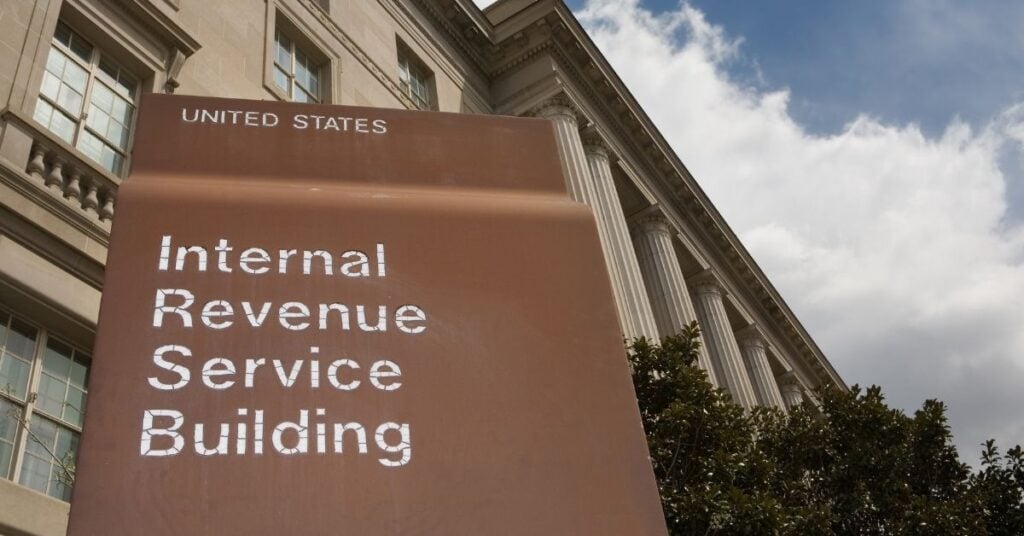Filing taxes by April 15 every year is far more difficult and costly than it needs to be for many American families. To help remedy that problem, the IRS recently announced that it is launching a pilot for its long-anticipated Direct File program, which will provide interested people in 13 states the ability to file their federal taxes for free next year. People in Arizona, California, Massachusetts, and New York will be able to file their state taxes for free, as well.
The tax preparation industry has spent millions of dollars over the past few years lobbying against this idea, and this year it has continued its aggressive campaign that would ensure most American taxpayers have no good alternatives to purchasing its services. One tactic, first noted by Pro Publica, has been to suggest that the mere availability of filing options outside those offered by the industry would harm Black Americans. As one Intuit spokesperson put it, free tax filing would take “power away from taxpayers, especially those from vulnerable communities.” Nothing could be further from the truth.
As part of this campaign, Intuit (which owns TurboTax) has waged a fierce public relations campaign in the Black press. For example, the Defender, a Black newspaper in Houston, ran an op-ed claiming Black taxpayers could be harmed by Direct File. The piece only included a quote from one person: an employee of Intuit. An online news outlet, Black Enterprise did the same thing. Intuit has been quietly building opposition to Direct File in the Black community.
In reality, the tax prep industry itself often harms lower-income people and people of color. The idea that an industry with large tax preparation fees that take away from tax refunds, that mishandles tax filings leading to expensive penalties or loss of credits, and that peddles predatory refund anticipation loans, could say it is the better option for communities of color would be laughable if it wasn’t so infuriating.
While many of the worst abuses under our current tax filing system occur at the hands of small, unscrupulous preparers, the nation’s largest tax preparation companies are far from blameless. More than 20 years ago, tax preparation companies struck a deal with the federal government that they would provide free online tax filing to certain taxpayers if the federal government promised not to provide it. The federal government carried out its end of that bargain, but the tax prep companies did not.
For years, Intuit used deceptive tactics to hide free tax filing options from eligible people and steer them toward paid filing instead. After it was caught in the act, Intuit dropped out of the IRS’ limited public-private Free File program to focus on its own commercial products. The company was also forced to return $141 million to customers that it deceived.
That old deal between the federal government and the tax prep industry is dead. The Inflation Reduction Act enacted last year instructed the IRS to study the feasibility of free online direct filing, which the IRS is implementing with this pilot program.
This has motivated Intuit to come up with more desperate arguments to protect the status quo. Intuit is trying to capitalize on recent research showing for years there has been racial bias in the IRS’ audit rates. The company claims it can provide a more accurate filing experience for people of color than Direct File. But there’s no evidence this is true.
The IRS has audited lower-income families – which include a disproportionate share of families of color – at higher rates than wealthy families and corporations. That’s largely because it’s more expensive and time-consuming for the agency to audit more well-off taxpayers with more complex returns, and the IRS budget was deeply cut time and time again during the 2010s.
But the new funding in the Inflation Reduction Act is designed to reverse that trend, and the agency is already taking steps to focus more intently on higher-income households. It also is making a concerted effort to address the audit disparities across racial and economic lines. However, despite the significant strides being made at the IRS, it’s safe to assume that Intuit and other corporations will continue to use these points to sow distrust in communities that have historically been set back by aspects of the tax system and its administration.
Direct File would give people of color a better, free alternative than Intuit and similar companies that want to profit from something that should be a public good. It would also be beneficial for lower-income filers for whom Direct File isn’t a good fit by freeing up more of the limited bandwidth that free tax preparers like Volunteer Income Tax Assistance (VITA) program sites have. This especially helps communities of color where right now hands-on attention from tax preparers comes with a cost.
Currently, there’s a patchwork of programs and preparers for people of color to turn to when filing taxes. Most come from corporations that profit from providing a service that the government could provide more effectively and efficiently for free. The Direct File program can change that and is a great step forward in the IRS’ work addressing racism in the tax code.





